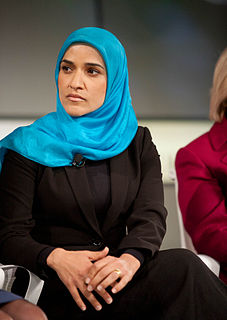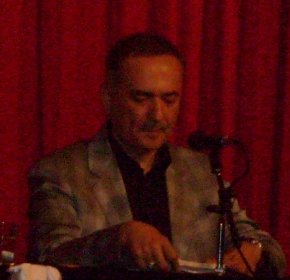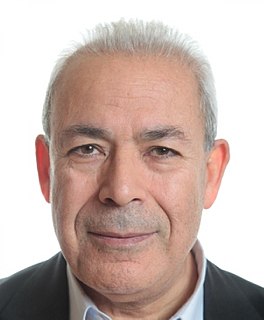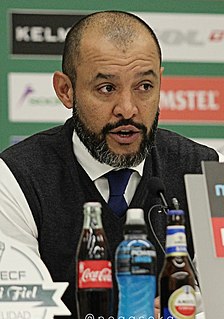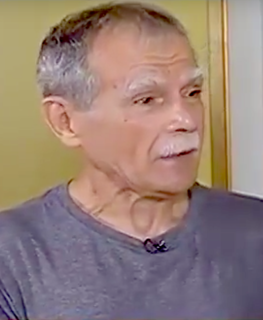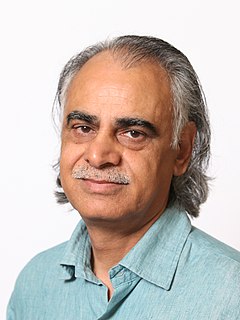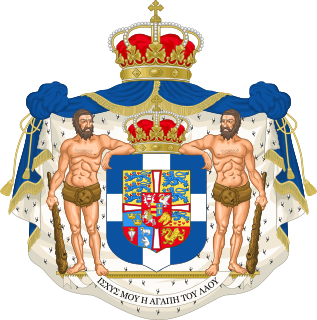A Quote by Dalia Mogahed
My national identity is first American. My religious identity is first Muslim.
Quote Topics
Related Quotes
The identity of just one thing, the "clash of civilization" view that you're a Muslim or a Hindu or a Buddhist or a Christian, I think that's such a limited way of seeing humanity, and schools have the opportunity to bring out the fact that we have hundreds of identities. We have our national identity. We have our cultural identity, linguistic identity, religious identity. Yes, cultural identity, professional identity, all kinds of ways.
If you embrace a project that will require time and patience, then you need something to work on. So the first step of the project is to create an identity. If you don't have an identity, then today you want this player and tomorrow another one. If you have an idea and a shape, then this is how you develop an identity.
I believe, as a Puerto Rican, that the majority of Puerto Ricans want to be Puerto Ricans. Once we become annexed to the United States or by the United States, that we will lose our national identity. I can look at Hawaii as an example of people who lose, the Natives who lose their identity. I can look into the Native American reservations and see people who lose their national identity, their culture, their language, their land. And that's what's going to happen to Puerto Ricans here.
My initial fear was that Trump would be something in the order of an American fascist, be militaristic and aggressive. My take on it after the first 100 days is that he's dangerous in a different way. Fascists are dangerous because they're competent people. Trump is incompetent. My fear is not just as an American Muslim, although that's part of it, but as an American who believes very strongly in the idea of a pluralistic, cosmopolitan, transatlantic Western identity. What he's doing to the West and the United States, I don't think the U.S. can recover from this.
I was examining what religious identity meant in Africa. Along the edge of the Islamic world, what patterns were shaping identity? And the truth is, when I looked at the rise of violent forms of religion, no single identity was prevalent. It's central to note that in Nigeria, that tree is rooted primarily in Christianity. It's not just Islamic militants in the Middle Belt.
